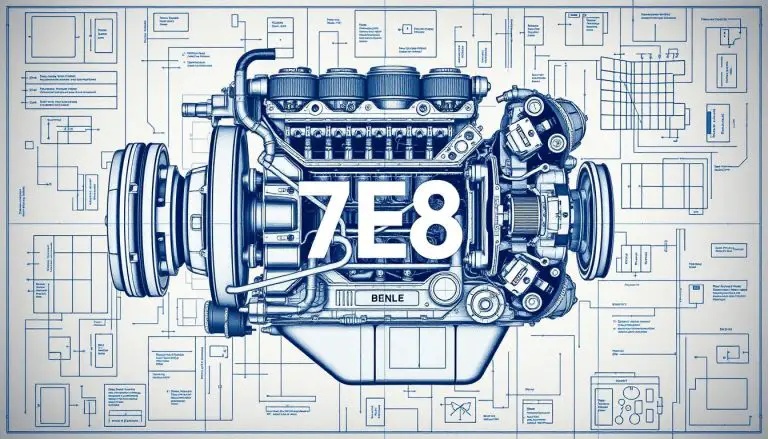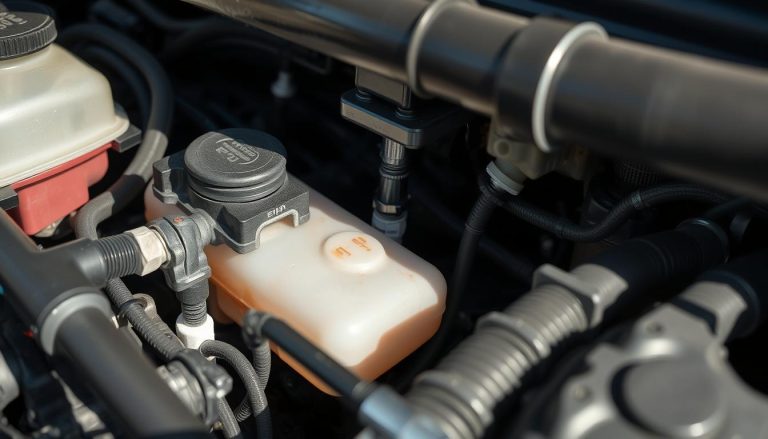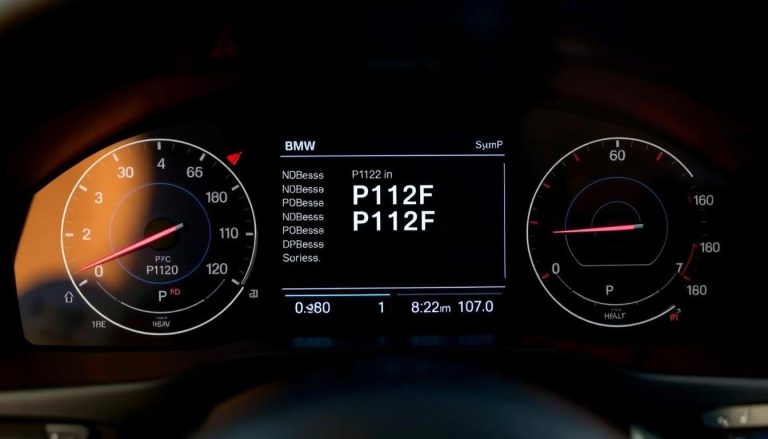When your check engine light flickers to life, among the many codes that can pop up, the P0172 code is one of those you definitely want to pay attention to. This particular error signals that something’s amiss with the fuel mixture in your vehicle—specifically, it’s running too rich on Bank 1.
But what does this really mean for you and your ride? Let’s dive into everything you need to know about the P0172 code: its causes, symptoms, diagnosis methods, and how to fix it so you can get back on the road without worry!
What does the P0172 – System Too Rich Bank 1 mean?
The P0172 code indicates that your vehicle’s engine control module (ECM) has detected an excessively rich fuel mixture in Bank 1. This means there’s too much fuel compared to the amount of air entering the combustion chamber.
When the ECM recognizes this imbalance, it triggers a check engine light to alert you. A “rich” condition can lead to inefficient combustion, resulting in decreased performance and increased emissions.
Bank 1 refers specifically to one side of the engine—usually where cylinder number one is located. In V-type engines, like V6 or V8 configurations, there are two banks; thus, it’s crucial to understand which bank requires attention.
Understanding this code helps pinpoint potential issues more effectively so you can address them before they escalate into costly repairs or damage.
What are the common symptoms of a P0172 code?
When your vehicle throws a P0172 code, several symptoms may become apparent:
- Poor acceleration. You might notice that pressing the gas pedal doesn’t yield the expected response, making driving frustrating and less efficient.
- Fuel economy can also take a hit. If you find yourself at the pump more often than usual, it might be linked to this trouble code.
- Check for unusual smells too; a rich fuel condition can lead to an excess of unburnt gasoline in the exhaust system, creating strong odors that are hard to ignore.
- Keep an eye on warning lights illuminating on your dashboard—typically the check engine light will signal further investigation is needed when dealing with a P0172 code.
What are the common causes of a P0172 code?
A P0172 code typically indicates that your engine is running rich on Bank 1. Several factors can contribute to this issue:
- A malfunctioning mass air flow (MAF) sensor. When this sensor fails, it cannot accurately measure the amount of air entering the engine, leading to an incorrect fuel-air mixture.
- A faulty oxygen sensor. If it doesn’t provide accurate readings, the engine control unit (ECU) may add too much fuel.
- Leaking fuel injectors or a damaged fuel pressure regulator can exacerbate the problem by allowing excessive fuel into the combustion chamber.
- Vacuum leaks can disrupt airflow and create imbalances in the system as well.
What are the diagnostic steps for a P0172 code?
Diagnosing a P0172 code requires a systematic approach. Start by connecting an OBD-II scanner to the vehicle’s diagnostic port. This will help confirm the P0172 code and check for any additional codes that may indicate underlying issues.
Next, inspect the air intake system for leaks or blockages. Faulty sensors can also contribute to a rich fuel condition, so pay close attention to the Mass Air Flow (MAF) sensor and Engine Coolant Temperature (ECT) sensor readings.
After checking these components, examine fuel pressure using a gauge. If it’s too high, this could lead directly to the rich condition indicated by your error code.
Review long-term and short-term fuel trim data in your scanning tool. This information provides insight into how much adjustment is needed for optimal performance in Bank 1 of your engine’s combustion process.
How Serious Is the P0172 Code? Can I continue driving with the P0172 code?
The P0172 code indicates that the engine is running too rich on Bank 1. This can lead to a variety of issues if not addressed promptly.
Driving with this code may seem manageable at first, but it poses risks. A rich fuel mixture can result in poor fuel economy and increased emissions. Over time, it could even damage components like the catalytic converter.
While you might be able to continue driving for a short period, it’s not advisable. Ignoring the problem could lead to more severe engine issues down the line.
If you notice other warning lights or performance drops, it’s time to take action. Addressing the P0172 code sooner rather than later can save money and prevent extensive repairs later on.
What are the repair solutions for a P0172 – System Too Rich Bank 1 ?
When dealing with a P0172 code, the first step is to check for any vacuum leaks. A simple hose replacement can sometimes resolve the issue.
Next, inspect the fuel injectors. Clogged or malfunctioning injectors might be dumping too much fuel into the combustion chamber. Cleaning or replacing them can restore proper function.
The mass airflow sensor (MAF) also deserves attention. If it’s dirty or faulty, it may provide incorrect readings to the engine control unit (ECU). Cleaning or replacing this component could rectify the rich mixture problem.
Additionally, consider examining your oxygen sensors. Malfunctioning sensors can lead to miscommunications about air-fuel mixtures and must be tested thoroughly.
Ensure that your fuel pressure regulator is functioning correctly; high fuel pressure can cause an overly rich condition as well. Each of these repairs aims at restoring balance in your vehicle’s air-fuel ratio system.
How long and How much does it cost to diagnose and repair a P0172 code?
Diagnosing a P0172 code typically takes about one to two hours at a professional shop. Technicians will use specialized equipment to read the trouble codes and perform additional tests on various components.
The cost of diagnosis can range from $100 to $150, depending on your location and the service center’s rates. This fee generally covers both labor and diagnostic tools used during the process.
If repairs are needed, costs can vary widely based on the root cause. Fixes might involve simple tasks like replacing air filters or spark plugs, costing around $50 to $300. More complex issues such as fuel injector replacements or oxygen sensor repairs could escalate expenses anywhere from $200 to over $1,000.
It’s wise to get a detailed estimate before authorizing any repairs so you know what you’re up against financially.
How can I avoid a P0172 code?
Preventing a P0172 code involves regular vehicle maintenance. Keep up with oil changes, air filter replacements, and fuel system cleanings. A clean engine runs efficiently.
Monitoring your fuel quality is also key. Use high-quality gasoline from reputable stations to avoid contaminants that can affect the air-fuel mixture.
Check for vacuum leaks regularly. These can cause an imbalance in the air-fuel ratio, leading to rich conditions.
Additionally, ensure your oxygen sensors are functioning correctly. They play a crucial role in measuring exhaust gases and adjusting the mixture accordingly.
Keep an eye on any warning lights on your dashboard. Addressing issues promptly can help you steer clear of further complications related to the P0172 code.
What happens if you ignore a P0172 code?
Ignoring a P0172 code can lead to significant issues down the road. A system that runs too rich means more fuel than necessary is being injected into the engine. This can cause poor fuel economy, resulting in higher gas expenses.
The excess fuel can also harm vital engine components over time. It may lead to carbon buildup in the combustion chamber and on spark plugs, causing misfires and reducing overall performance.
Additionally, prolonged neglect of this code might trigger other related trouble codes. The vehicle’s check engine light could illuminate repeatedly, indicating worsening problems.
Environmental concerns arise as well; an overly rich mixture increases harmful emissions. This not only affects air quality but could also result in failing emissions tests required for registration.
Addressing a P0172 code promptly protects your car’s health and ensures smoother operation. Ignoring it could open up a costly Pandora’s box of repairs later on.
Is the P0172 code specific to certain car makes or models?
The P0172 code is not unique to specific car makes or models. It can appear across a broad spectrum of vehicles, including those from Ford, Chevrolet, Honda, and Toyota. This universality stems from the fundamental nature of how fuel systems operate in internal combustion engines.
However, the frequency of this code may vary among different manufacturers due to design differences in components like fuel injectors and sensors. For example, some cars are more prone to vacuum leaks or failing mass airflow sensors that could trigger this error.
It’s also worth noting that vehicle maintenance history plays a significant role. A well-maintained car might encounter this issue less frequently than one with neglected upkeep. So while all cars can potentially display the P0172 code, certain brands may have quirks that make them more susceptible under particular conditions.
What other codes may be related to P0172?
When dealing with the P0172 code, it’s important to understand that it often doesn’t exist in isolation. Several other diagnostic trouble codes (DTCs) may accompany or be related to a rich condition such as this one.
Commonly associated codes include P0175, which indicates a system too rich on bank 2. This can occur simultaneously if both banks of the engine are experiencing similar issues. Another related code is P0130, which signifies an issue with the oxygen sensor circuit for bank 1. If your vehicle’s fuel mixture is off balance, the oxygen sensors will struggle to provide accurate readings.
Additionally, you might encounter P0455, indicating a large vacuum leak in the evaporative emissions system—another factor that could lead to a rich running condition. Codes like these highlight potential underlying problems within your vehicle’s fuel and emissions systems.
Addressing these interconnected issues early on can save you from more extensive repairs down the line and ensure optimal performance of your vehicle. Keeping an eye out for any accompanying codes during diagnostics can help create a comprehensive approach to resolving not just the symptoms but also their root causes.


